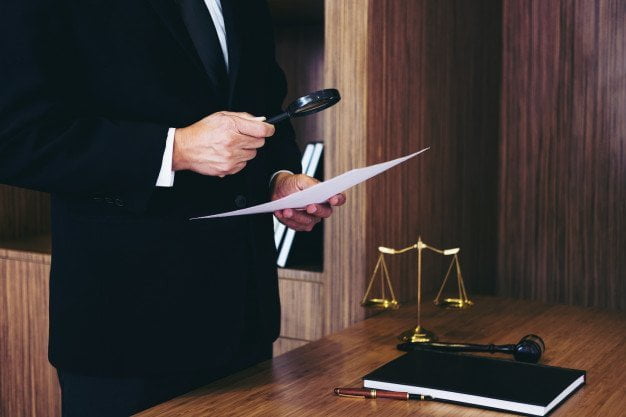How to Avoid Being Served
by Mashum Mollah Uncategorized 23 May 2019

Perhaps you’ve seen this scene in a movie…a well-dressed man or woman comes up to the main character, hands them an envelope, and says, “You’ve been served!” But do you really know what it means? And what if you are hoping to avoid being served by legal documents or a subpoena?
What is a Subpoena?
A subpoena is a request for documents or court order that someone has to appear in court at a certain date and time. It is an actual summons to appear before the judge or provide the requested information to the court before a certain date. If a person receives a subpoena but chooses not to comply with its terms he or she could be fined, serve jail time, or both. There are three parties who are authorized to issue a subpoena: the presiding judge, the county clerk, or even the lawyer who is representing a private party or a government agency.
What are the reasons for issuing Subpoenas?
What are some possible situations where someone would be served? Documents are often served in cases such as lawsuits, divorce proceedings, child custody, or personal injury cases. If the subpoena is being delivered by hand, process servers are used for personal delivery of the documents. In some states, they can also be emailed to the person’s last known email address with a return receipt requested, sent by certified mail to the last known address (return receipt requested), or even read aloud in front of the person. Regardless of the method, the court’s goal here is to have a verifiable way of knowing that the documents reached their intended party.
When can you refuse a Subpoena?
There are a few instances where avoiding or challenging a subpoena is absolutely justified. The following reasons are valid reasons with the court for refusing a subpoena:
- The information requested by the subpoena is considered “privileged information” and thereby essentially confidential.
- The subpoena’s request is too broad, or it lacks specifics.
- The requested information has either been lost or destroyed (this only applies if it is lost or destroyed before the receipt of the subpoena).
- The subpoena’s request is too burdensome – this is often the case if the court is asking you to travel a significant distance to the appropriate city or state, for instance.
- The last resort, the subpoena’s request may violate your Fifth Amendment rights against self-incrimination.
So how do you avoid being served a subpoena if it is the type of case where you are better off not being served? First of all, keep in mind that the more paper (and electronic!) trails you have, the more chance there is of these documents being subpoenaed in a court case. The fewer documents, the less chance. Also, remember that shredding your trash and securely deleting old computer files are also good ideas to reduce your paper/electronic trails.
If you are a potential witness to a civil lawsuit, avoidance is good if the temporary strategy. If the process servers can’t find you, they can’t serve you. If you remain ignorant about the subpoena, you don’t know to show up. This may work for a bit if you are a witness, but if you are an actual party in the lawsuit, avoidance will only work for so long before the judge sanctions you for failure to appear.
If the courts are requesting documents to be presented, you do have the option of objecting to the subpoena in writing. If you do so in a timely manner, the other party must go back to court to ask that they compel you to produce the documents or information requested. This can buy you some time before you are legally summoned to appear in court.
Rules regarding Subpoenas vary from State to State
You must also keep in mind that the laws surrounding process servers and subpoenas may be different depending on what state you live in. For example, in New York process servers must keep electronic records of their deliveries as well as keep track of the GPS movement of their serves. The subpoenas also cannot be served on Sundays or on Saturdays if the recipient keeps that day as a holy day. Some states, such as California, allow the subpoenas to be circulated via publication if they can’t find the party in person. The notice will be listed in the classified or back page section of the local newspaper and circulated for a designated period of time. Always check with your state’s specific rules and laws regarding subpoenas, whether you are trying to serve one or trying to avoid being served with one.
How you can use Private Investigators
It is also common these days for process servers to also be private investigators. Who better to track down people than a private eye? New York private investigator Darrin Giglio said, “Many private eyes work as process servers because they have knowledge of the law, the ability to track down people who don’t want to be found, and the ability to be inconspicuous, which makes them perfect for serving subpoenas.” Again, you can simply not answer the door if you are trying to avoid being served but be aware of the consequences before you do.
Read Also:







































































































